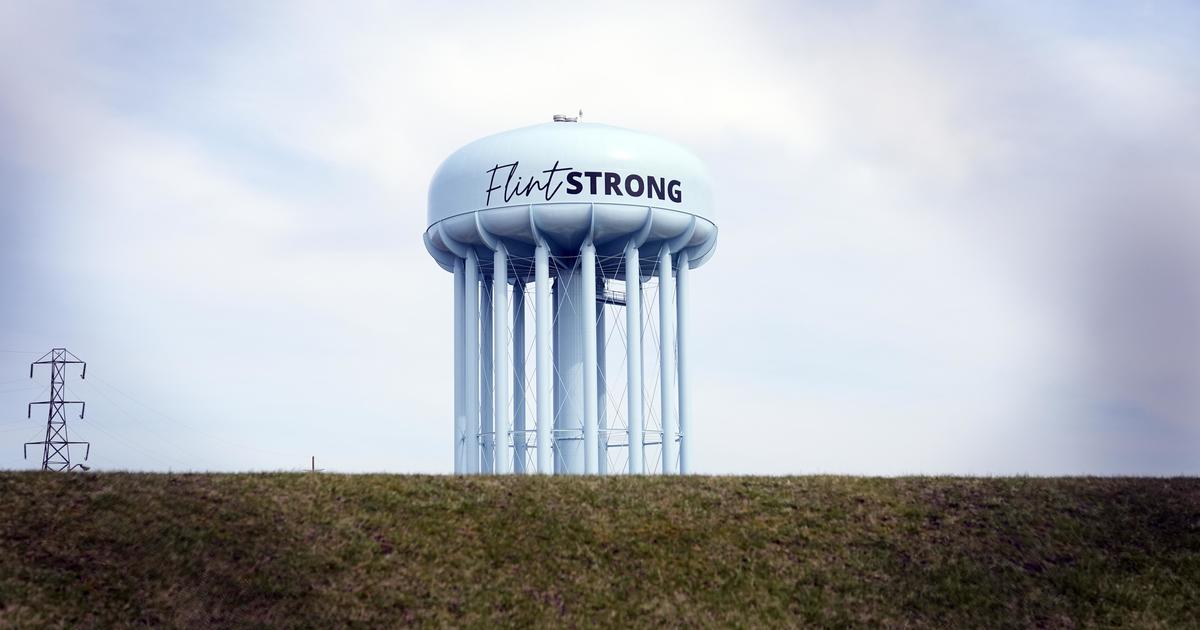Tech Tour Day Two: Greener Carbon
MARQUETTE (WWJ) -- If you ever get a chance to visit Michigan Renewable Carbon, the odor will make you want to go camping.
The company is producing activated carbon in a far more Earth-friendly fashion than current methods from renewable feedstocks -- wood waste.
And while it's doing all that good stuff for the planet, it's also creating jobs for the Upper Peninsula, making a profit -- and the process creates the warm and gentle aroma of a campfire, enough to make an ol' camper like me feel all warm and fuzzy.
Michigan Renewable Carbon, based at the former K.I. Sawyer Air Force Base in Gwinn, 15 miles south of Marquette, is a subsidiary of Minneapolis-based Biogenic Reagents.
The company was established in 2011, and the MRC subsidiary started operations in 2012. Aside from a small loan from the Michigan Department of Environmental Quality, the company is funded privately.
Saturday, Todd Smrekar, vice president of operations, was nice enough to give me a tour. Smrekar is a veteran of the forest products industry, having managed an OSB wood plant.
"Our mission is to create products that cost less, perform better and reduce environmental impact," he said.
So far so good. MRC takes pine wood chips -- waste from sawmills -- and puts them into a giant dryer that looks like a rocket tipped on its side. that reduces the amount of water in the wood from 50 percent to about 15 percent. That dried wood is stored in a sealed container. Then it's fed into a reactor, where it's heated to between . The wood doesn't burn because the combustion chamber barely has oxygen in it. Instead in an atmosphere that's mostly inert nitrogen, it converts to pure carbon and volatile organic gases -- which are recycled and burned to help the heating continue, making the process very nearly a closed loop. The process is called "pyrolytic fractionation."
The resulting carbon product comes in a variety of forms -- dust, pellets, chips. It's used for purifying everything from air to food to pharmaceuticals.
And demand will soon increase as the government puts more smokestack regulations on power plants that will demand they remove more mercury from their emissions, mercury that can be captured by activated charcoal filters.
The company is also working on a renewable replacement for metallurgical coke used in steel manufacturing.
MRC's plant was originally built to make wood cubes designed to be burned in power plants. Converting it to charcoal production cost $35 million, a project managed by an Alpena contractor, DeVere Construction.
And it has so far created 21 jobs that pay $15 an hour and offer performance bonuses in an area of persistently high unemployment.
"A lot of our workers here used to be unemployed," Smrekar said. "And we've got quite a few veterans here. We didn't really target veterans, but when we were interviewing people they kind of rose to the top. We've been able to help them out.'
Smrekar said there's a ready market for more activated charcoal. The global market is 1.5 million metric tons a year at an average price of $1,750 a ton, or $2.6 bllion a year. And tests show that MRC's charcoal is actually better at absorbing pollutants as conventionally produced activated carbon -- perhaps because, as a natural product that used to be wood, it has an internal vascular structure that coal-made carbon lacks -- while causing far less greenhouse gas emissions to make.
Right now MRC is raising money for more reactors -- it hopes to have four in the building eventually.
--------------------------------------------------------
My next stop on the tour had me visiting an old friend that I've been visiting as long as there have been UP Tech Tours, Terry Dehring of Quick Trophy.
Dehring grew up in Alpena and attended Northern Michigan University in Marquette. And then he and his wife Anne moved to Madison, Wis., not exactly an awful town or a huge one, but it never quite seemed like home.
it before moving to Madison, Wisc. However, life in the Wisconsin capital didn't completely suit Dehring and his wife Anne.
Dehring and two partners who live in the Detroit area hit upon the idea of a mail-order trophy business to compete with local trophy shops for sports and business accolades. The World Wide Web lets QuickTrophy sell anywhere. And the UP's relatively low wage rates allows the company to be price competitive while still providing jobs in the region.
The company found a cool headquarters -- a former U.S. Fish and Wildlife Service fisheries research building a block from Lake Superior, where it would open its doors in 2001 and enjoy steady growth until 2008.
"The Great Recession affected us like everybody else, but this year is poised to be our best year ever," Dehring said, finally topping the previous record year of 2008.
QuickTrophy's orders come in online and are shipped to the production line, where workers pull standard trophy gear -- pedestals, obelisks, boxes, and plated acrylic sports figurines, sports balls, etc. -- out of a series of bins and assemble the trophies. They're wrapped and shipped the same day the order comes in. Virtually the entire midwest is within two days' shipping time, but Dehring said the company actually does the bulk of its business -- roughly half -- on the Eastern Seaboard, with cities between Washington, D.C. and Boston.
QuickTrophy does local work, too -- like more than 300 trophies for a soccer tournament being held in Marquette the same weekend as the Tech Tour visit.
The company now has 17 workers, having just hired three.
"We have hundreds of orders online every day," Dehring said. "It's a great little niche for us. We get to live up here and still sell trophies to the world."
More at www.quicktrophy.com.
---------------------------------------------------------------------
Next, I talked to another old friend, Walter Breidenstein, whose Walloon Lake-based Gas Technologies LLC is finally firing up commercial scale production of its groundbreaking gas-to-liquid-energy product.
Breidenstein, a son of Michigan's oil patch, has developed a single-step process for converting natural gas into a commercially profitable blend of methanol, ethanol, formalin and other hydrocarbon liquids.
The process works with the "flare gas" that's normally just wasted -- burned off -- at remote oil drilling sites. And it works with the biogas produced by landfills or the decomposition of animal waste at farms. In short, there are a lot of really interesting potential applications for this technology.
Breidenstein has now packaged up that technology into a new "portable mini-GTL" (gas to liquids) plant that fits into a 26-foot-long truck trailer.
"This one can handle all feedstocks -- natural gas, flare gas, biogas and biomethane from renewable, sustainable sources," Breidenstein said. "You could have one at an oil well site, or a dairy farm, or a landfill. It's all automated and it's pretty nifty."
Breidenstein said the mini units make between 4 1/2 and 10 barrels per day of methanol and formalin blend -- about 65 percent methanol, and 35 percent formalin blend.
Breidenstein has been working on this process for a decade, and thinks it's finally ready for the market.
"We hope to sign our first commercial customer in the next two weeks," he said. "We're not 100 percent certain, but we had very good demonstrations this week with customers that were here... and it looks like one customer will move forward to commercialization on a smaller scale. Another one might order a little bit larger plant."
Whatever happens, Breidenstein said, "we've now validated the single-step process" from gas to liquids vs. the existing two-step process. "We can reduce capital costs by 70 percent," he said.
More at www.gastechno.com.
-------------------------------------------------
And while I couldn't get over to Houghton on this visit, darn it, I did want to mention that one of Michigan's coolest digital marketing shops, the Marketing Department Inc., is "graduating" out of incubator space into its own offices.
The new offices will be at 600 Shelden Ave., Third Floor, in downtown Houghton. The company was previously in space provided by the city of Houghton, according to Karyn Olsson, chief marketing officer and principal.
The company currently has eight employees and is "always looking for talent, especially in the area of graphic design and creative."
More at www.marketingdepartmentinc.com.



